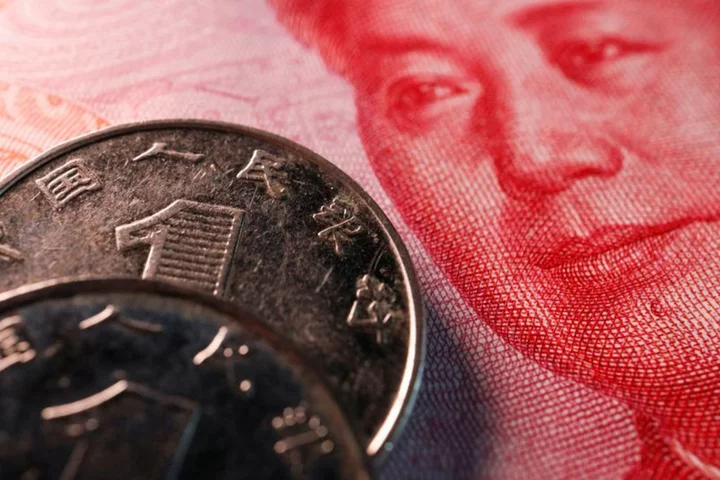By Gayatri Suroyo and Stefanno Sulaiman
JAKARTA Bank Indonesia unexpectedly raised interest rates on Thursday to arrest the rupiah's decline amid U.S. monetary tightening and rising geopolitical risks, with economists seeing possible further hikes should the currency's weakness persist.
The central bank hiked the benchmark 7-day reverse repurchase rate by 25 basis points to 6.00%, its second hike this year and its seventh since starting its tightening cycle in 2022. Its two other main rates were also hiked.
The benchmark is now at its highest level since June 2019.
All economists polled by Reuters had expected the bank to leave rates unchanged.
The decision came as the rupiah faced renewed pressure, hitting its lowest since 2020 earlier on Thursday as risk-averse investors prefer safe haven assets amid monetary tightening in advanced economies and tensions in the Middle East. The currency pared back some of its losses after the hike.
"This increase is to strengthen stabilisation measures for the rupiah against the impact of increasing global uncertainty, and as a pre-emptive and forward-looking step to mitigate its impact on inflation through imported goods," Governor Perry Warjiyo said.
Warjiyo noted that BI had discussed the timing of future monetary easing just last month. But BI changed course due to "fast changing and very unpredictable" global dynamics pushing energy and food up and dampening the outlook for global growth, the governor said.
Capital Economics' Gareth Leather warned that further weakness in the rupiah could trigger more rates hikes, but "there is a good chance this will be a case of one and done" if U.S. bond yields fall and pressure on the rupiah abates.
DBS economist' Radhika Rao concurred.
"In a move that is reminiscent of its hawkish posture in 2018, authorities are likely to keep the door open for further rate adjustments if the currency remains under pressure on global uncertainties, notwithstanding contained domestic inflation risks," she said.
EASING LIQUIDITY
Despite its recent depreciation, the rupiah remained one of the best performing emerging Asian currencies, propped up partly by Indonesia's trade surpluses.
Wary of Indonesia's large stock of foreign currency debt, analysts have said the rupiah's weakness is holding BI back from cutting interest rates, even as inflation cooled to a 19-month low in September, near the lower end of BI's 2% to 4% target range for 2023.
Complementing Thursday's rate hike, Warjiyo said next month BI will issue FX-denominated securities, called SVBI and SUVBI, aimed at attracting capital inflows. BI last month began selling new, tradable rupiah-denominated securities (SRBI) with the same intention.
Despite the rate hike, BI will support domestic lending growth by easing a liquidity requirement for banks and extending its zero downpayment policy for mortgages and auto loans to the end of 2024, Warjiyo said, underlining that BI's macroprudential policy stance is "pro-growth".
"It is a bit surprising for me that they continue to make further loosening of macroprudential policy," said Fakhrul Fulvian, chief economist of Trimegah Securities, adding this will "minimise" the effect of the rate hike.
Even with the rate decision, BI kept its growth forecast for Southeast Asia's largest economy at 4.5% to 5.3% in 2023.
Since August 2022, BI has raised interest rates a total of 250 bps.
(Reporting by Gayatri Suroyo, Stefanno Sulaiman, Bernadette Christina and Fransiska Nangoy; Editing by Martin Petty & Simon Cameron-Moore)









